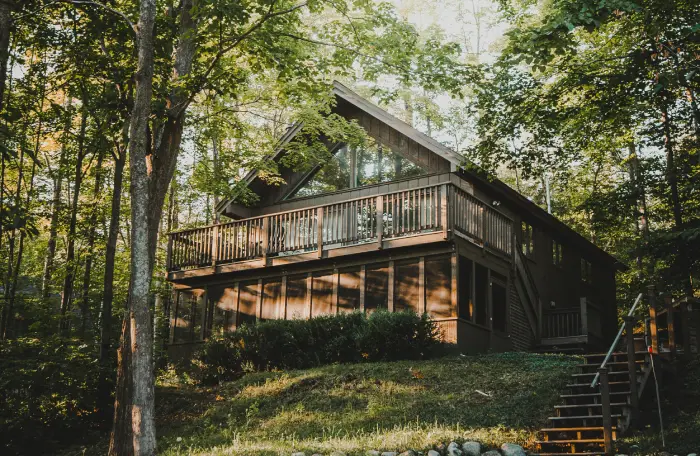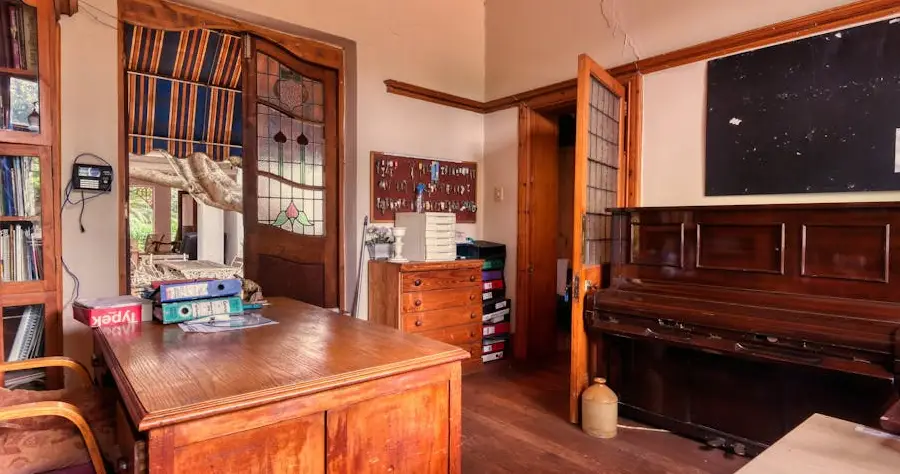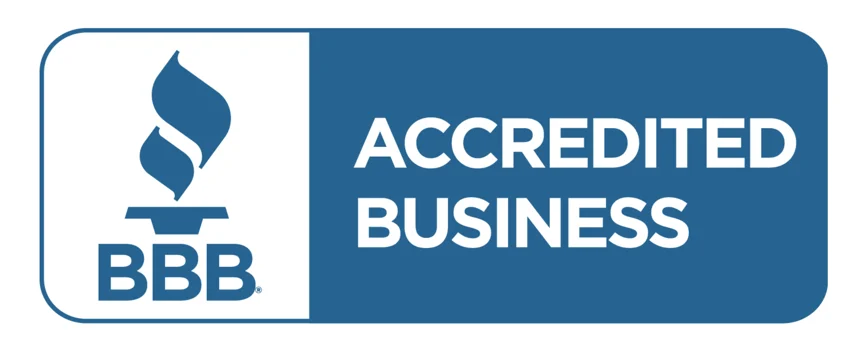Selling your home can come with a lot of pressure—especially when it comes to repairs. Many homeowners find themselves asking, what not to fix when selling a house? It’s a valid question. The truth is, not everything needs updating before you list. Some repairs won’t boost your home’s value enough to justify the time, money, or effort.
In this blog, we’ll guide you through the smart decisions: what to skip, what buyers really care about, and how to make your home market-ready without overspending.
1. Why Not Everything Needs Fixing Before You Sell
It’s easy to feel overwhelmed when preparing to sell your home. Friends, family, or even your agent might suggest repairs or upgrades—some necessary, many not. But the truth is, you don’t need to fix everything before selling.
First, understand this: most buyers aren’t looking for a “perfect” home—they’re looking for a livable, well-maintained space they can eventually make their own. In fact, trying to make too many changes right before selling can:
- Eat into your budget and lower your profit margin
- Delay your timeline and cause you to miss the best time to sell
- Result in choices that don’t match buyer preferences
Also, many buyers today are looking for homes they can customize to fit their style. So that outdated backsplash or slightly worn carpet? It’s often not a dealbreaker—it’s an opportunity for the buyer to add their personal touch.
Instead of trying to update everything, focus on the essentials:
- Clean the home thoroughly
- Declutter every room
- Take care of any safety or structural issues
You’ll be surprised how far a clean, functional home will take you—without the added stress or expense of unnecessary renovations.
2. Cosmetic Fixes You Can Skip
It’s easy to get caught up in small details—especially when you’re trying to impress potential buyers. But the truth is, many minor cosmetic issues don’t make or break a sale. Buyers aren’t expecting a magazine-perfect home. They’re looking for a clean, well-kept space they can move into and personalize over time.
Here are a few common cosmetic flaws that most buyers will overlook:
- Small nail holes or wall scuffs from picture frames or everyday use
- Worn cabinet hardware that still functions fine
- Outdated paint colors in good condition—especially neutrals
- Minor carpet stains or wear in low-traffic areas
- Old light switch plates or slightly mismatched fixtures
Rather than pouring money into replacing every outdated detail, focus on creating a clean, bright, and uncluttered environment. Natural light, fresh air, and spaciousness do far more to win over buyers than a perfectly repainted wall.
A good deep cleaning, tidying up furniture arrangements, and removing personal items will make your home feel bigger and more appealing—without the need for costly cosmetic upgrades.
See our article about Can I Sell A House that Needs Repairs?
3. Outdated Features That Don’t Need Changing
It’s tempting to think that every outdated detail in your home will turn off potential buyers—but that’s rarely the case. In reality, many buyers walk into a home already planning to make cosmetic updates to fit their own style. That means they may not mind the older appliances or vintage tiles as much as you think.
Here are several outdated (but completely acceptable) features you likely don’t need to change before selling:
- Older appliances that are clean and in good working condition—even if they aren’t stainless steel
- Dated light fixtures that still function well and match the rest of the home’s look
- Wood cabinetry or original cabinets that are sturdy and presentable
- Simple bathroom vanities with some age but no major flaws
- Popcorn ceilings in secondary rooms or areas that are otherwise in good condition
Rather than replacing these features, your goal should be to ensure they are clean and well-maintained. A clean older appliance is much more appealing than a broken one, and vintage cabinets can add charm when presented properly.
Unless you’re selling in a luxury market, most buyers would prefer a lower price with the option to renovate later than pay extra for upgrades they may not even like.

4. Costly Repairs That Might Not Add Value
Not all expensive fixes will get you a better sale price. In fact, some of the most costly repairs can actually lower your return on investment because buyers may not value those updates as much as they cost you. So, before you commit to a major project, it’s important to understand what’s actually worth it—and what’s not.
Here are common big-ticket items that homeowners often feel pressured to replace, but usually don’t increase the home’s market value enough to make it worthwhile:
- New windows – Unless your windows are broken, leaking, or severely drafty, buyers are unlikely to expect new ones.
- Roof replacements – If the roof is leaking or nearing the end of its life, you may need to negotiate. But many buyers are fine with a roof that has a few years left.
- Complete kitchen or bathroom remodels – While flashy renovations look nice, most buyers prefer to make updates themselves. These projects are costly and often offer only partial ROI.
- New HVAC systems – If your heating or cooling works fine, there’s rarely a need to upgrade. Buyers are more concerned with function than brand-new equipment.
- Energy-efficiency upgrades – Unless you’re targeting a very eco-conscious market, updates like new insulation, solar panels, or energy-efficient siding might not deliver immediate payback.
Instead of investing tens of thousands of dollars, sellers can often get better results by pricing the home slightly lower and letting the buyer decide how they want to improve it.
In fact, according to Remodeling Magazine’s Cost vs. Value Report, the national average ROI for most home remodeling projects hovers between 50%–70%. That means you’ll likely lose money trying to “fix everything.”
If you’re uncertain about a particular fix, ask your agent or cash buyer whether it’s a dealbreaker or just cosmetic. Often, leaving things as-is and adjusting the price is the smarter move.
5. What Buyers Actually Care About
Buyers often focus on the overall condition of the home rather than specific finishes. What truly matters to most buyers is:
- A safe, structurally sound property
- Functioning electrical and plumbing
- Working heating and cooling
- A clean, well-maintained appearance
- A layout that meets their needs
Clean and functional beats stylish but stressful.
6. When to Sell As-Is and Skip All the Fixes
Selling “as-is” means you skip all repairs—and buyers know they’re purchasing the home in its current condition. This works best if:
- You inherited a home and don’t want to renovate
- You need to relocate quickly
- You’re dealing with financial stress or foreclosure
- You don’t want to deal with agents or showings
Working with a local cash buyer like Hometown Development LLC allows you to sell as-is without spending money upfront.
7. What Not to Fix When Selling a House
If you’re selling a home in West Michigan—whether you’re in Kent, Ottawa, or Ionia County—there’s good news: buyers in this area often prioritize affordability and long-term potential over perfection. That means you don’t need to do a full renovation to sell your home quickly and at a fair price.
In fact, over-improving can work against you. Spending thousands on upgrades that don’t match local buyer expectations may leave you with a smaller return on investment. The key is to understand what’s normal—and acceptable—for your local market.
What You Can Usually Skip in West Michigan:
- Replacing wood siding with vinyl: Unless it’s damaged or rotting, most buyers don’t expect new siding.
- Installing granite or quartz countertops: In entry-level or mid-range homes, buyers will often choose to upgrade countertops themselves later.
- New flooring throughout: If your floors are clean and intact—even if a little dated—buyers may prefer to budget for their own choice down the road.
- Whole-house repainting: Unless your walls are stained, scuffed, or painted in bold, hard-to-sell colors, you don’t need to repaint everything.
Instead of sinking money into upgrades that may not matter, many sellers in places like Grand Rapids, Kentwood, Wyoming, Rockford, Holland, Jenison, Grand Haven, Belding, Saranac, Fruitport, Muskegon, and Norton Shores choose to price their homes more competitively.
You can also emphasize the home’s structure, functionality, and potential, rather than trying to meet unrealistic visual standards. In this region, a good price and a solid home go much further than cosmetic perfection.
If you’re looking for a simple, cost-effective way to sell in West Michigan, consider selling your house as-is to a local buyer like Hometown Development. You’ll avoid unnecessary expenses and still attract serious, ready-to-act buyers.
8. Final Thoughts: Focus on What Matters Most
When selling your house, your goal isn’t to make it perfect—it’s to make it welcoming and move-in ready. Don’t waste time or money on repairs that won’t deliver a return.
Stick to the essentials:
- Clean thoroughly
- Fix safety hazards
- Price it right
Want to skip all repairs entirely? You can.
💬 Skip the Fixes. Sell Your House As-Is With Hometown Development
If you’re in Grand Rapids, Kentwood, Wyoming, Rockford, Holland, Jenison, Hudsonville, Belding, Saranac, Muskegon, Fruitport, or Norton Shores, Hometown Development is here to help you sell your home fast—without spending a dime on repairs.
We buy houses as-is and close on your timeline.


























